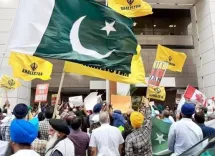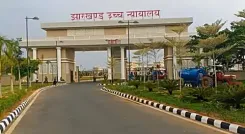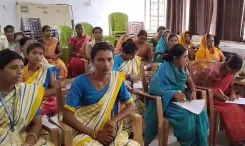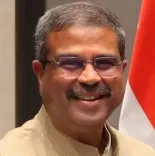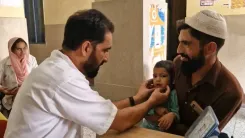Will Nepal's Pro-Monarchy Group Hold Peaceful Protests Tomorrow?
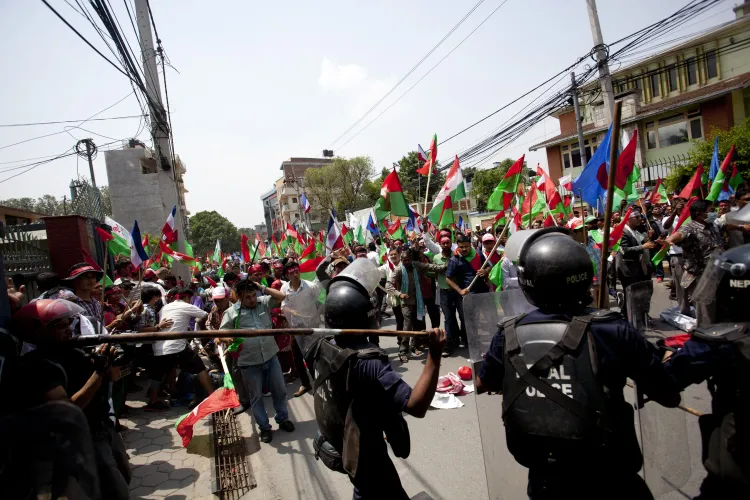
Synopsis
Key Takeaways
- Pro-monarchist protests are set to resume in Nepal.
- Demonstrations will focus on civil disobedience and Satyagraha.
- Rajendra Lingden emphasizes the need for peaceful protests.
- Previous protests resulted in violence and casualties.
- A coalition of pro-royalist and pro-Hindu groups will join the protest.
Kathmandu, May 28 (NationPress) The pro-monarchist faction in Nepal has announced plans to reignite its demonstrations on Thursday (May 29), following two months after their protests escalated into violence while advocating for the reinstatement of the monarchy and a Hindu state in the Himalayan country. Rajendra Lingden, the leader of the Rastriya Prajatantra Party, emphasized that these upcoming protests will center around civil disobedience and Satyagraha (non-violent resistance), and they aim to remain entirely 'peaceful.'
During a press conference on Tuesday, Lingden stated that the protest is set to occur at Ratnapark in Kathmandu, regardless of whether authorities grant permission.
"Our demonstration will not result in violence. It will be fully managed by us and will not extend beyond the Ring Road. Even if permission is denied, we will proceed at Ratnapark," Lingden remarked.
Lingden accused Nepalese Prime Minister KP Sharma Oli of attempting to incite chaos during the upcoming protest.
During a party gathering, Oli, who leads the Communist Party of Nepal (Unified Marxist Leninist), cautioned that his party would maintain control over Kathmandu from 11 am to 2 pm on May 29, as reported by the prominent Nepalese newspaper, The Kathmandu Post.
"The prime minister is attempting to instigate unrest on Thursday. His inappropriate remarks necessitate either a correction or his resignation. We have announced our program at Ratnapark, while the prime minister's party is calling its members nearby to instigate conflict. Journalists must cover this issue with impartiality," Lingden added.
It has been reported that a coalition of pro-royalist and pro-Hindu groups advocating for the restoration of the Hindu state and monarchy will unite in this protest.
Prime Minister Oli has allegedly directed UML cadres to organize and exert control over the streets of Kathmandu in anticipation of the protest.
In the meantime, Kamal Thapa, chairman of the Rastriya Prajatantra Party Nepal (RPP-N), declared that previously fragmented monarchists have now united to pursue their shared objectives.
"We have transitioned from a state of complete stagnation to a cohesive front among monarchists. There is a growing understanding that this is the optimal moment to advocate for the dissolution of republicanism, federalism, and secularism," Thapa stated.
Thapa accused the major political parties in Nepal of attempting to undermine the ideological foundation of monarchists.
He mentioned that if the monarchy, abolished by the Constituent Assembly in 2008, is reinstated, then Hridayendra Shah, the grandson of former king Gyanendra Shah, could ascend the throne with national consensus.
"If there is national agreement, let's make Hridayendra Shah the king. If the public perceives Gyanendra Shah as too advanced in age, then we must be prepared to explore alternatives based on consensus. If there is agreement on Hridayendra, then Gyanendra must also accept it. Monarchy transcends individual identity; it embodies an ideology. We believe that the successor should be a descendant of Prithvi Narayan Shah. Identifying who that should be is not the primary concern," Thapa elaborated.
Previously, tensions escalated in the Tinkune area of Kathmandu on March 28 during pro-monarchy demonstrations, resulting in two fatalities and hundreds of injuries due to violent confrontations between security forces and pro-monarchy activists.
This violence caused estimated damages amounting to Nepalese Rs 460 million.

